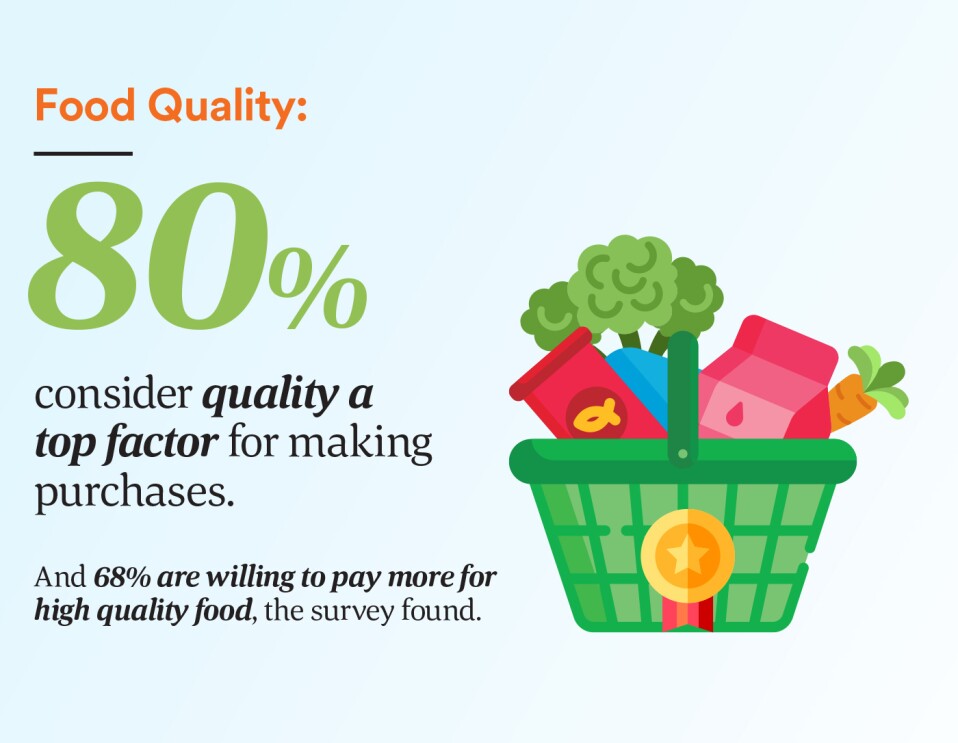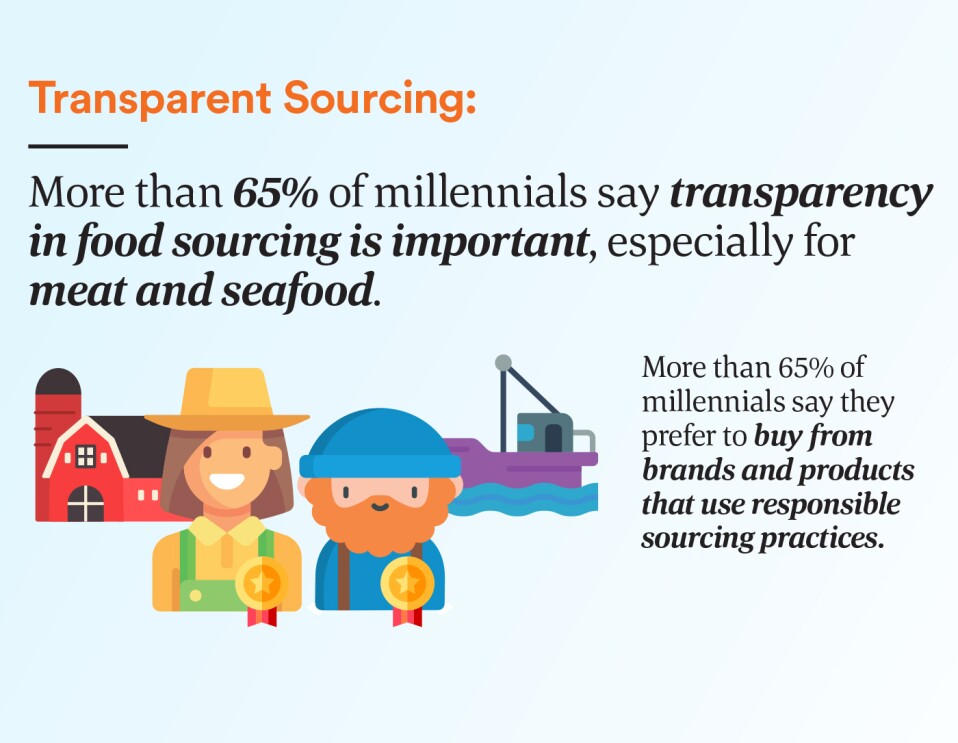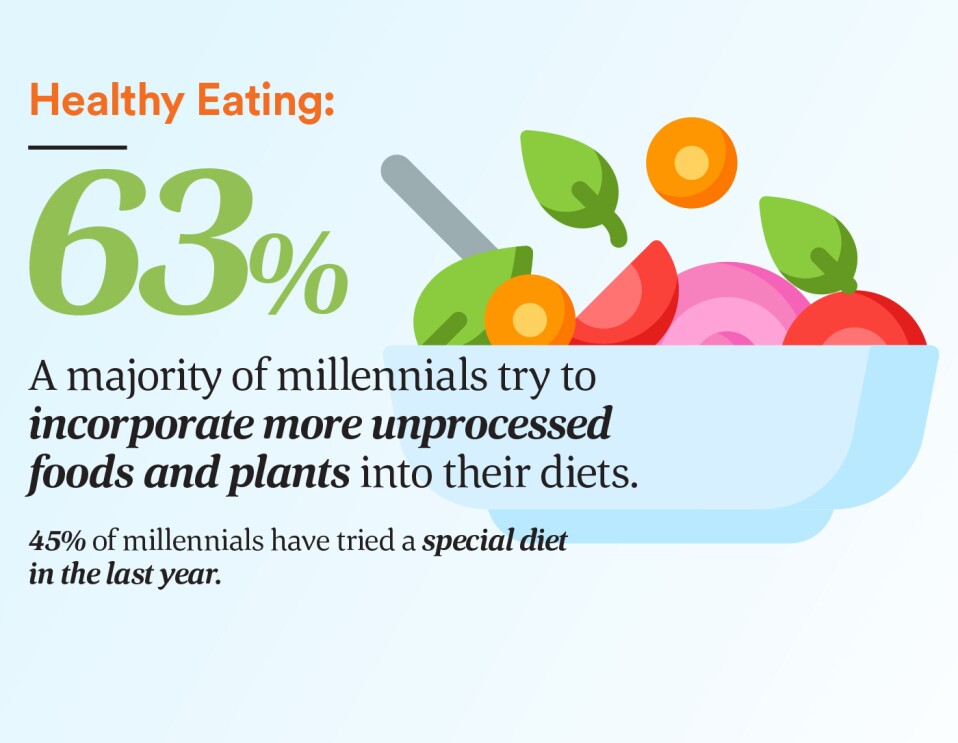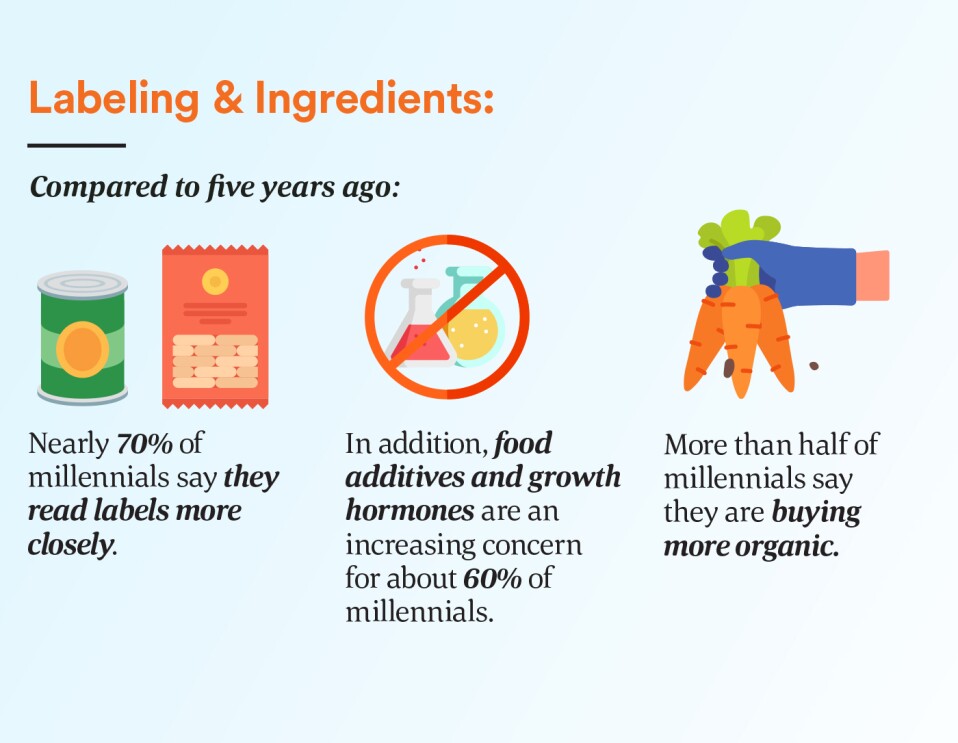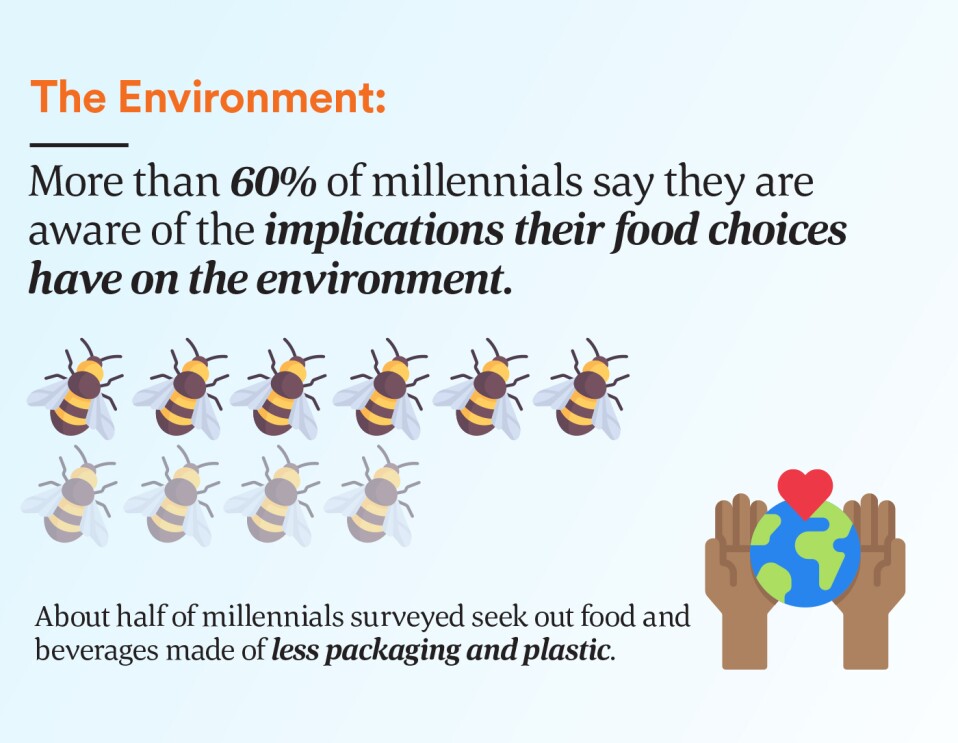Q: Why did Whole Foods Market do this survey?
Q: What did the survey reveal about millennials relationship with food?
Q: What three things do millennials care about most when grocery shopping?
Page overview
Quality
An overwhelming majority—more than 80 percent—said food quality is a priority for them. Quality has always been a priority for Whole Foods Market, too. We’ve pioneered some of the top standards for quality in the grocery industry, and we’ve been doing it for more than 40 years. In every single one of our stores, we ban more than 100 preservatives, flavors, colors, and other ingredients commonly found in food—including high-fructose corn syrup and artificial sweeteners.
What is even more compelling is that millennials are willing to stand behind their food values with their wallets. The survey found nearly 70 percent of millennials are willing to pay more for higher quality.
We’re seeing the rise of transparent sourcing across all sectors, not just food. It’s no surprise that more than 65 percent of interviewees say transparency in food sourcing is important, particularly for buying meat and seafood. In fact, more than half of millennials are willing to pay more for products that have adopted animal welfare standards.
Nearly 70 percent of millennials read labels more closely than they did five years ago. More than 60 percent are more concerned about additives and growth hormones. Ultimately, half of them buy more organic products than they did five years ago. They want real food.
01 / 06
Q: What role does health play in food shopping?
Q: What about trying diets?
Q: The environment seems to be top of mind. Was that true for food shopping?
Trending news and stories
- Amazon Stores CEO reveals what he learned from Jeff Bezos about building company culture
- Isabel Allende's 'The House of the Spirits' adaptation coming to Prime Video on April 29
- How to listen to the new 'Harry Potter' audiobooks on Audible
- Everything you need to know about the 'God of War' series coming to Prime Video

